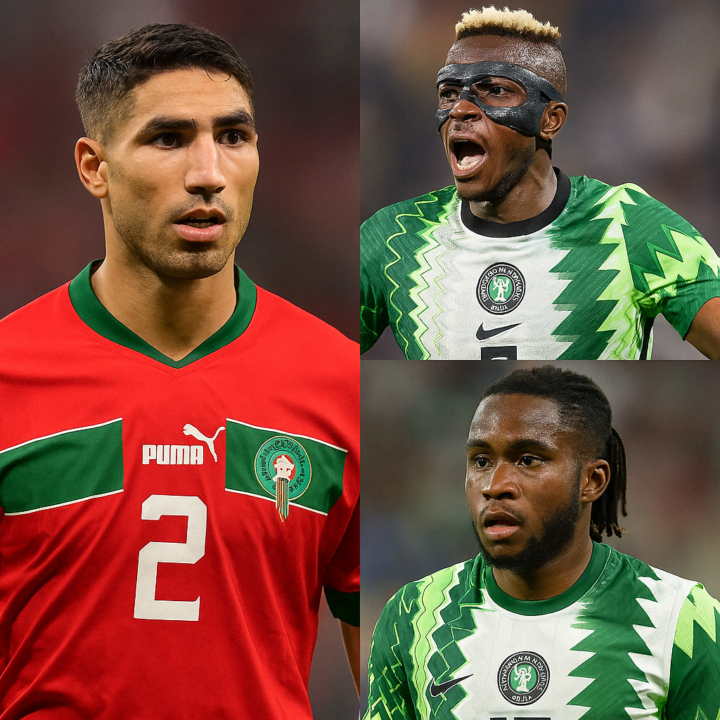Image source: FIFA.com
As Philadelphia gears up to host matches during the 2026 FIFA World Cup, FIFA President Gianni Infantino’s recent visit underscores the city’s importance in the upcoming global sporting event. Mayor Jim Kenney will meet Infantino, highlighting preparations and the high stakes for the city, athletes, and communities worldwide. The upcoming tournament brings both opportunities and significant challenges, particularly for African nations and their talented soccer players.
Philadelphia’s Key Role in FIFA 2026
Philadelphia is among the 16 North American cities chosen to host the expanded 48-team 2026 FIFA World Cup. FIFA President Gianni Infantino’s presence signifies Philadelphia’s crucial role in one of the most significant sports events globally. Beyond economic gains through tourism and international exposure, hosting World Cup matches provides Philadelphia a unique chance to spotlight its diverse communities and deepen connections through soccer’s universal appeal.

Image source: FIFA.com
African Soccer Faces High Stakes and Misses Opportunities
For African countries, qualifying for the World Cup carries enormous economic, cultural, and sporting significance. The failure to qualify, as seen with Nigeria missing out due to insufficient points during the qualifiers, has severe consequences. These include lost revenues from potential sponsorship deals and tourism influxes, fewer global exposure opportunities for rising young talent, and a noticeable decline in national pride and morale.
Nigeria’s absence is particularly impactful. Known for its passionate football fanbase, the nation’s failure to qualify dampens the enthusiastic spirit typically associated with global tournaments. Nigerians, famously committed to watching their national team compete even at odd hours must now cope with missing out on this profound source of pride and unity.
How Africa’s World Cup Veterans Deliver Consistent Performances
Despite these setbacks, African nations have consistently made their mark on the global stage. Cameroon stands out with the highest number of World Cup appearances (eight), followed closely by Nigeria and Morocco, each with six appearances. These countries have significantly contributed to African football’s global reputation through consistent performances, exceptional talent, and memorable moments on football’s biggest stage.

Image generated by AI
African Stars and High-Value Squads
Morocco and Nigeria currently boast the continent’s most valuable squads, driven by globally recognized talents like Achraf Hakimi, Victor Osimhen, and Ademola Lookman. Victor Osimhen, in particular, has drawn attention with his exceptional scoring record for Napoli, becoming a symbol of African footballing potential.
However, Senegal holds the mantle as Africa’s best-rounded squad, blending seasoned experience with consistent international performances. Senegal’s Koulibaly exemplifies the country’s footballing prowess, having consistently proven their quality at club and international levels. Their presence underscores why Senegal remains Africa’s strongest representative on the global stage.

Image source: FIFA.com
Service Journalism Explains What the 2026 FIFA World Cup Means for Fans
For soccer enthusiasts in Philadelphia and globally, the 2026 World Cup offers more than games, it offers narratives, opportunities, and a profound cultural experience. Here’s how fans and communities can engage meaningfully:
- Local Engagement: Fans in Philadelphia can attend matches, participate in local community events, and volunteer for various organizational roles.
- Economic Impact: Local businesses can benefit significantly from increased tourism and global exposure during the tournament period.
- Supporting African Excellence: Fans can engage with and celebrate the stories of top African talents, even from nations that did not qualify, by supporting these players in their club endeavors.
Looking Ahead at Empowering African Football
While missing the World Cup has profound immediate impacts, it also highlights the need for structural improvements within African football governance and development systems. Enhanced investment in youth academies, better training infrastructure, and increased global visibility through player scouting and marketing are critical steps toward consistent qualification and performance.

Image source: FIFA.com
Why Philadelphia Could Become a Global Football Hub
As Philadelphia prepares itself to host the 2026 World Cup, the city’s diverse multicultural fabric and soccer fervor position it as a microcosm of the tournament’s global spirit. Gianni Infantino’s visit underscores more than logistical preparations; it is a nod to the narratives that will define this event: the rise of Black excellence, the resilience of African football, and the unifying power of the game.
While Nigeria’s absence and similar qualification struggles reveal systemic gaps, they also spotlight opportunities. The diaspora’s unwavering support for stars like Osimhen and Mané even in their club careers proves that fandom transcends borders. For Philadelphia’s communities, the World Cup is a chance to celebrate these connections, uplift local businesses, and advocate for equitable investment in the sport’s future.
The 2026 stage is not just about goals; it is about legacy. From the streets of Lagos to the pitches of Philly, the beautiful game continues to inspire, challenge, and unite. The world will be watching and so will the next generation of talent, eager to carve their paths.

Immanuel Burns Johnson is a young and dedicated social media personnel. He was born, raised and schooled in Lagos, Nigeria. His hobbies include traveling, sports, political criticism and mobile games like C.O.D.M. Apart from these; he is also interested in skydiving and aeronautics. He is skilled in web coding and has a trait of hard work. This has helped him become successful in his field at a young age.





